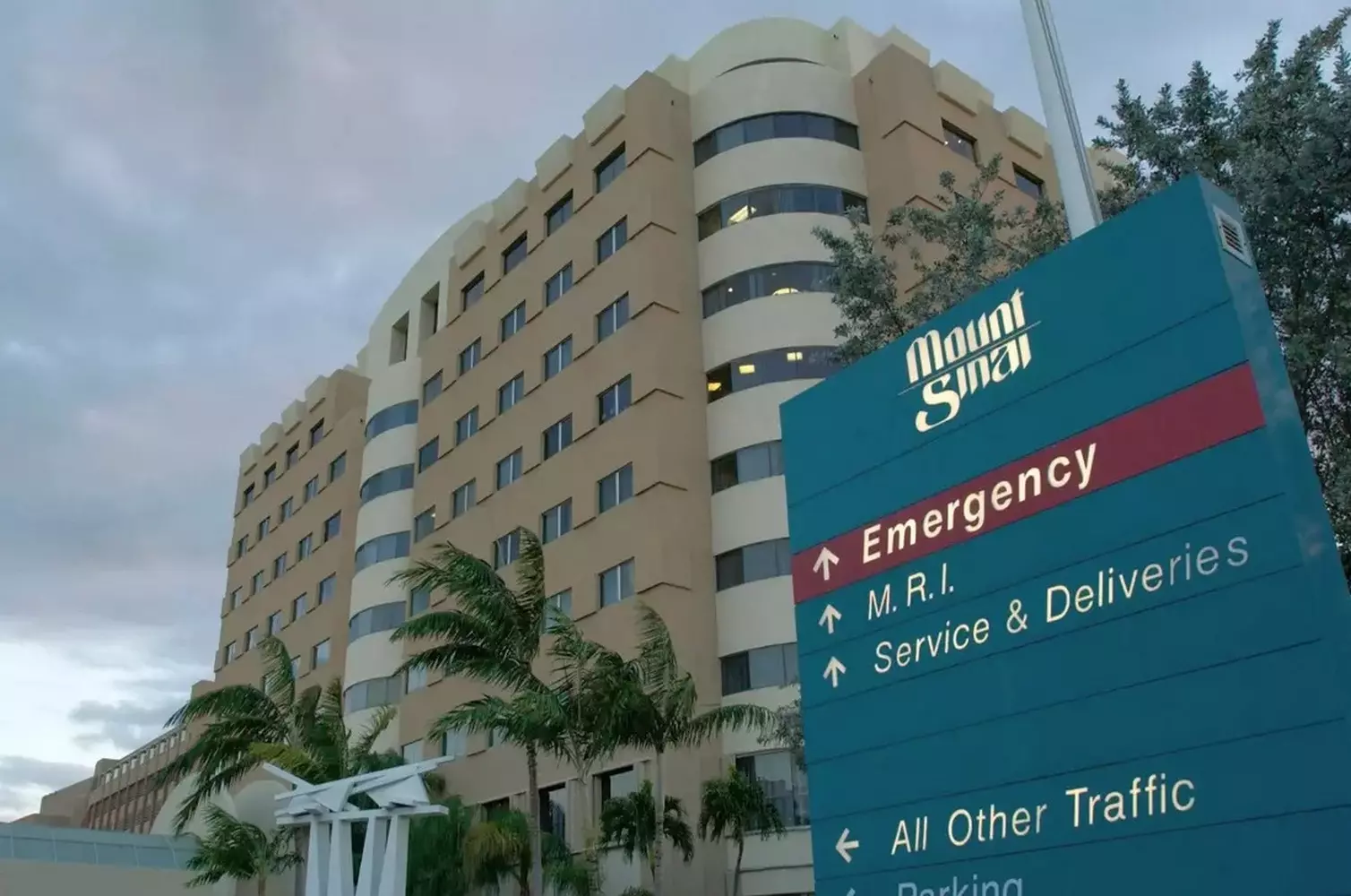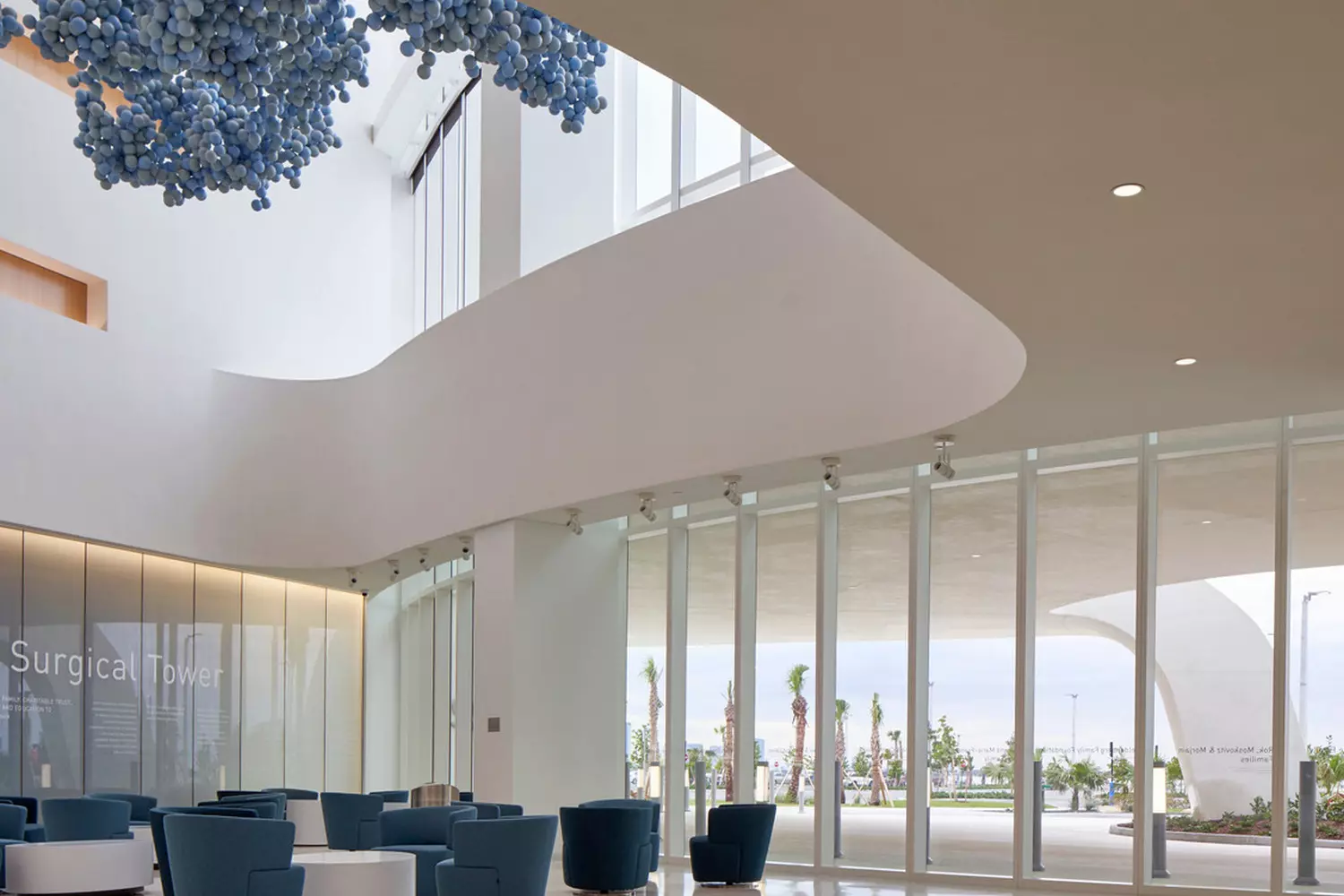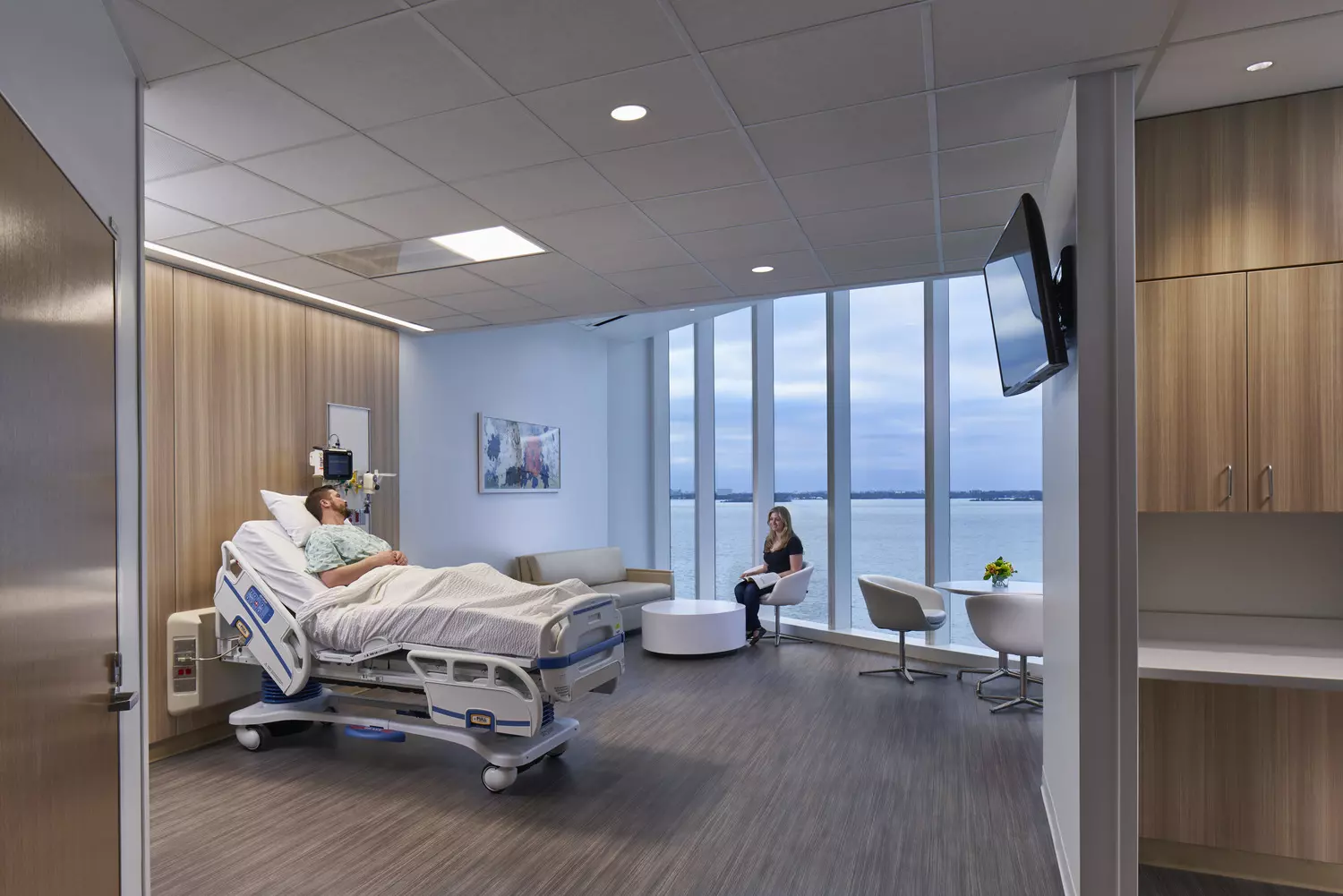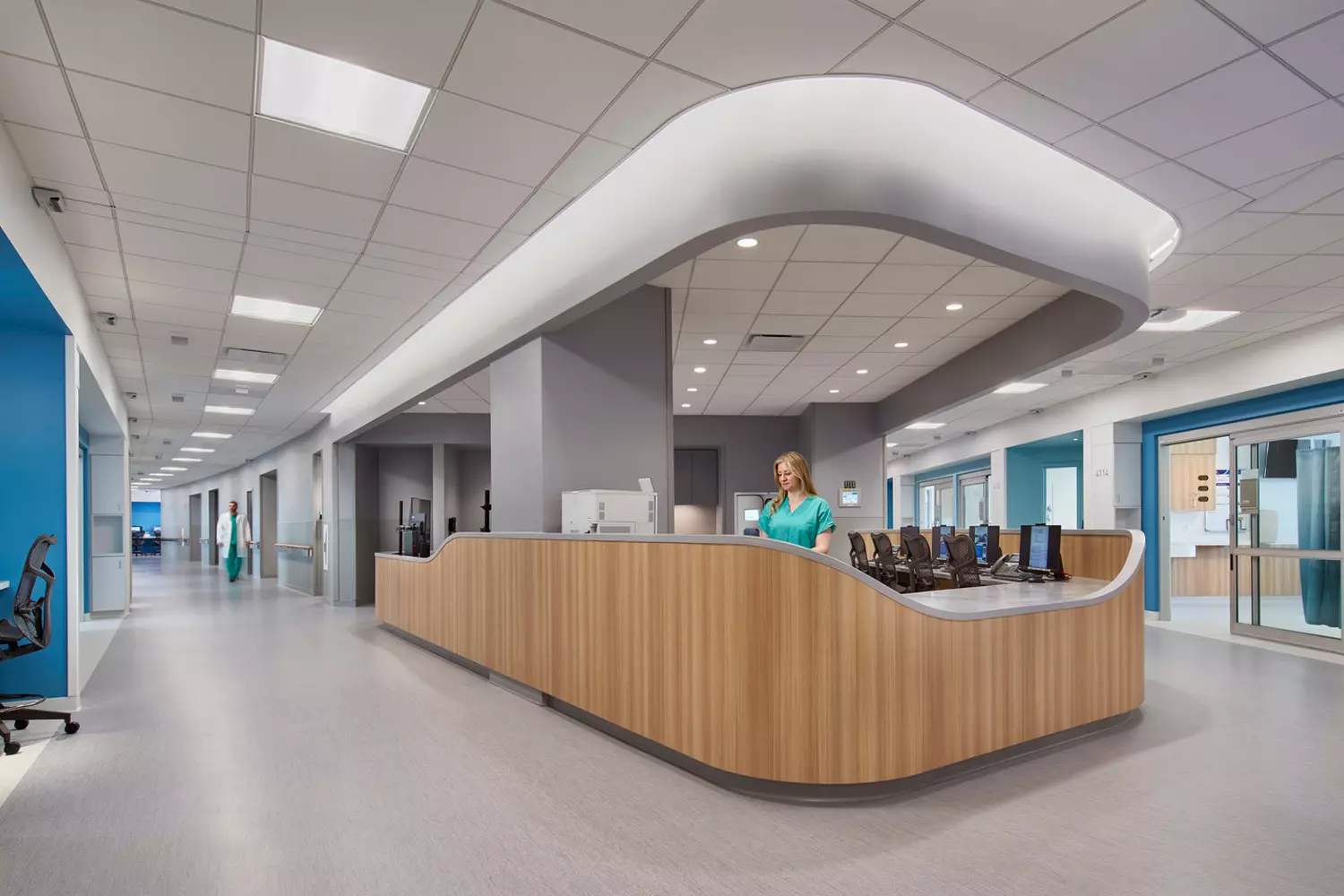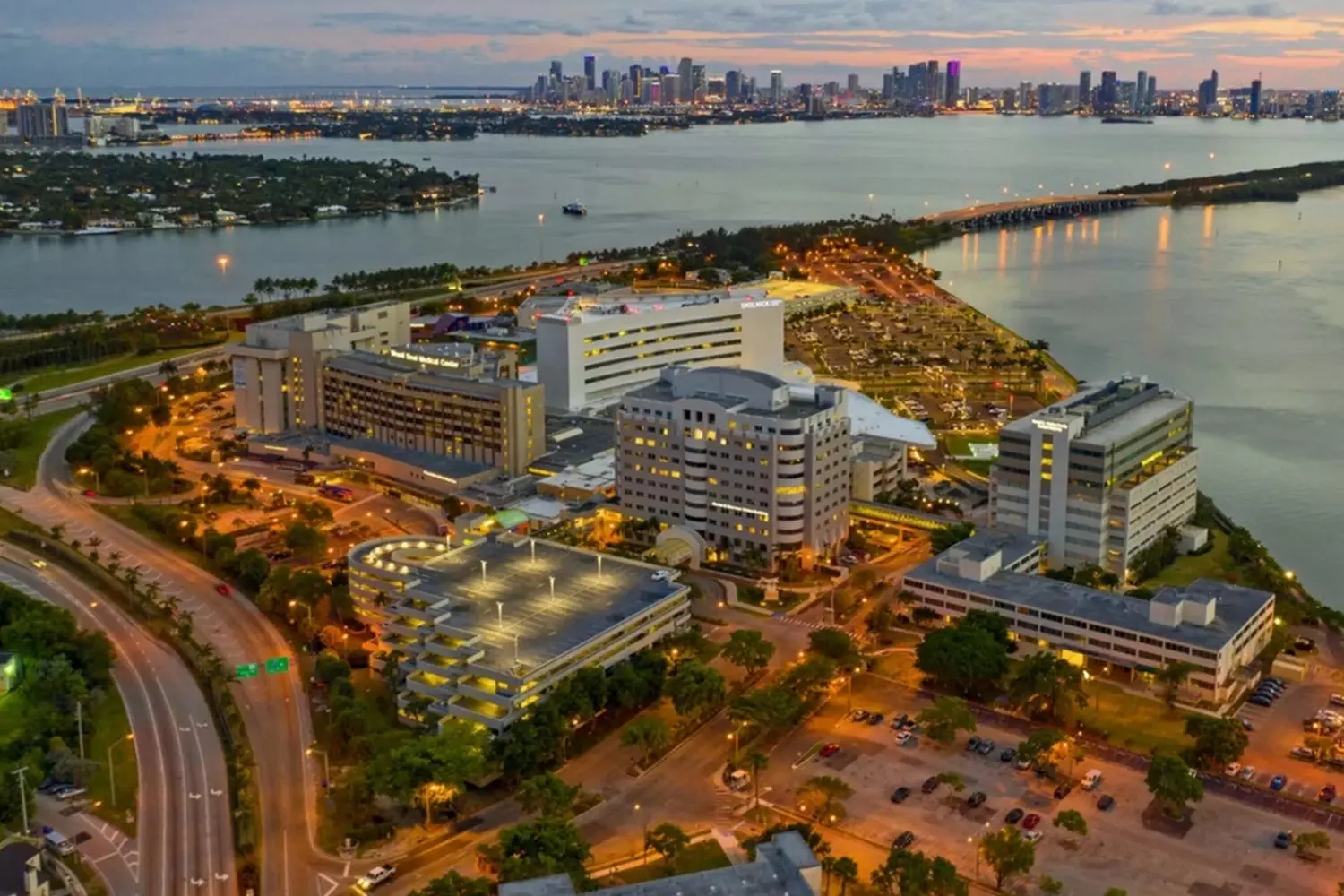Mount Sinai Medical Center
Mount Sinai Medical Center in Miami — the largest private university hospital in Florida, offering high-tech treatments in cardiology, oncology, neurology, and other specialties.
- City:Miami Beach
- Address:4300 Alton Road, Miami Beach, Florida, 33140, USA
- Specialization:Cardiology, neurology, oncology, obstetrics, pulmonology, etc.
- Language:English, Spanish, Russian — upon request, Portuguese, French, Haitian Creole

Mount Sinai Medical Center
"A person's health is the greatest wealth; take care of it, and it will take care of your future"
This is how you can begin your acquaintance with Mount Sinai Medical Center — a hospital that not only treats but creates conditions for every patient to feel that their health is the center of attention.
Mount Sinai Medical Center is a name that has long been synonymous in Florida with professionalism, advanced technologies, and genuine care for people. Founded more than seventy years ago, today it is one of the leading medical centers not only in Miami but also in the entire southeastern United States.
It attracts those who value confidence in results, attention to detail, and an individual approach. At Mount Sinai, the patient always comes first — their comfort, safety, and quality of care. Here, they do more than perform surgeries and make diagnoses — they create an atmosphere where you can truly restore your health and feel that you are in reliable hands.
Mount Sinai Medical Center combines the best of both worlds: a modern technological base and the warm, human approach of the staff. Thanks to ongoing research, educational programs, and investments in infrastructure, the hospital remains one of the most respected medical institutions in the region.
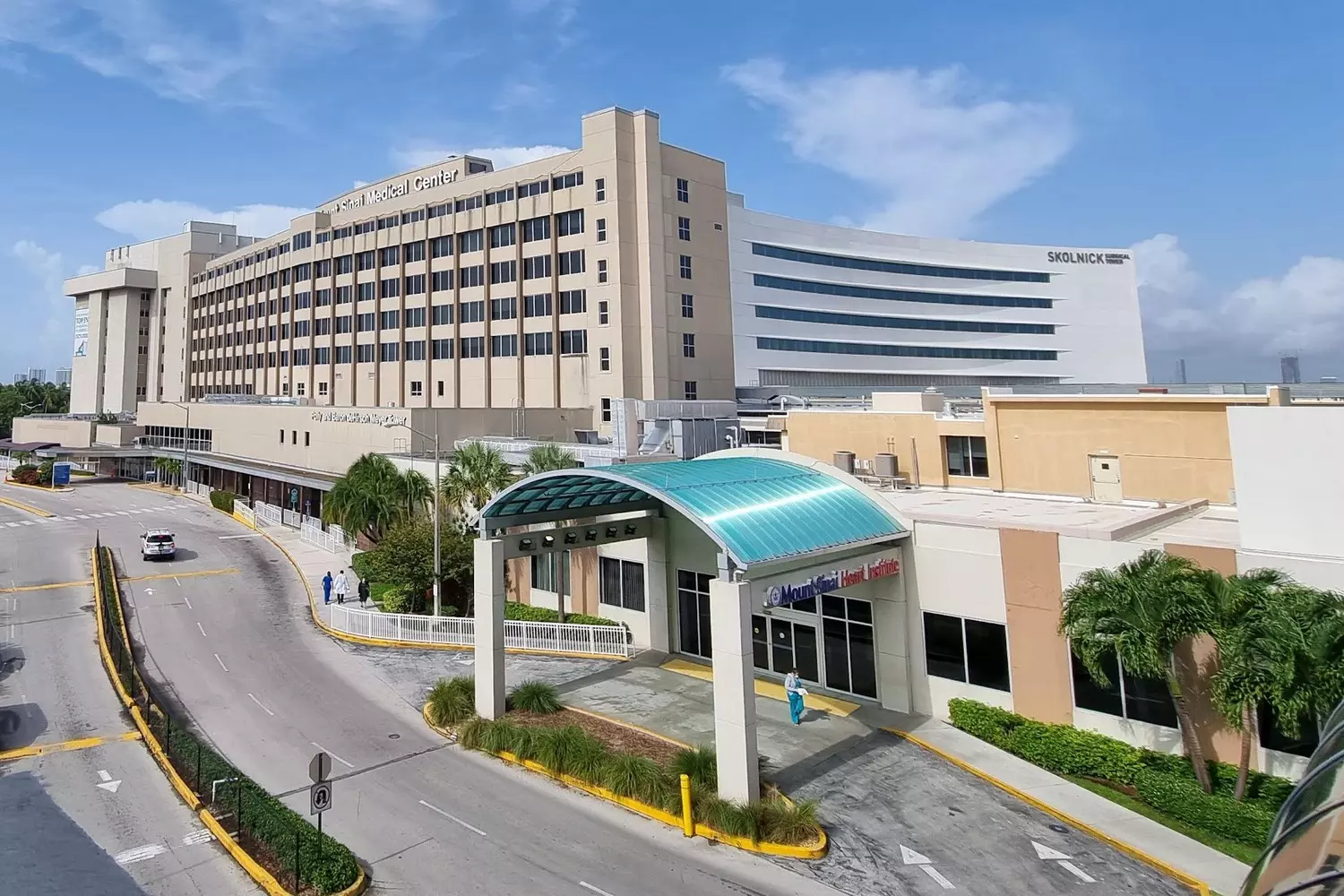
One of the hospital’s buildings, formerly known as the Miami Heart Institute, was later sold and converted into luxury condominiums under the Ritz-Carlton brand. This demonstrates that the hospital not only grows but also reevaluates its needs.
History and Mission of Mount Sinai Medical Center
Mount Sinai Medical Center did not emerge as just another hospital, but as a symbol of unity and the belief that healthcare should be accessible to everyone. In the late 1940s, when Florida was experiencing rapid growth, a group of doctors and philanthropists from Miami Beach decided to change the rules. At that time, many medical institutions in the U.S. had restrictions based on religion or social status — but the future founders of Mount Sinai believed that health knows no distinctions.
Thus, in 1949, a project was born to become the first independent hospital open to all in the region. They named it "Mount Sinai" — after the mountain where, according to biblical tradition, the commandments were given. This symbolized the purity of intention and a mission to serve people with respect, without prejudice, regardless of their background, wealth, or faith.
- The first Mount Sinai building was relatively modest — about one hundred beds, a few departments, and a staff that brought together doctors of different nationalities and cultures. Yet from the very beginning, the hospital stood out for the quality of care and attention to patients.
- With each decade, Mount Sinai grew, introduced new technologies, and opened more specialized departments. In the 1960s–1970s, the first cardiology labs and surgical units for complex heart operations were established. In the 1980s, the hospital began developing oncology and neurology programs, laying the foundation for future centers of excellence.
- By the 2000s, Mount Sinai Medical Center had become the largest independent non-profit hospital in South Florida, while preserving its original philosophy — "medicine with a heart".
- Today, it is more than just a hospital — it is a full-fledged medical city with over 600 beds, dozens of operating rooms, modern research laboratories, and a staff of several thousand specialists. Importantly, Mount Sinai remains a teaching hospital, training the next generation of doctors in both technique and ethics, emphasizing human-centered care.
Mount Sinai Medical Center has always adhered to a simple but powerful principle: "Every patient deserves not just treatment, but care, respect, and attention."
This philosophy underpins the hospital's mission — to provide high-quality medical care to a diverse community, combining clinical excellence, education, and research. The key principles guiding the hospital are:
- Quality and safety — with no compromises;
- Education and innovation — the hospital trains its own specialists and participates in research that shapes the future of medicine worldwide;
- Charity and accessibility — Mount Sinai remains a non-profit institution, annually allocating millions of dollars to treat people without insurance;
- Accountability and trust — transparency and patient-focused processes have made the hospital one of the most respected medical institutions in the region.
More than 75 years have passed since its founding, yet the spirit of those who built the first clinic on the shores of Miami Beach lives on today. Mount Sinai continues to grow, expand its branches, implement cutting-edge medical technologies, open research centers, and strengthen educational programs.
At the same time, it remains true to its mission — helping people regardless of their status or means, while maintaining humanity and care in every action. It is this combination of tradition and innovation that makes Mount Sinai Medical Center not just a hospital, but a special place where people regain their health and hope.
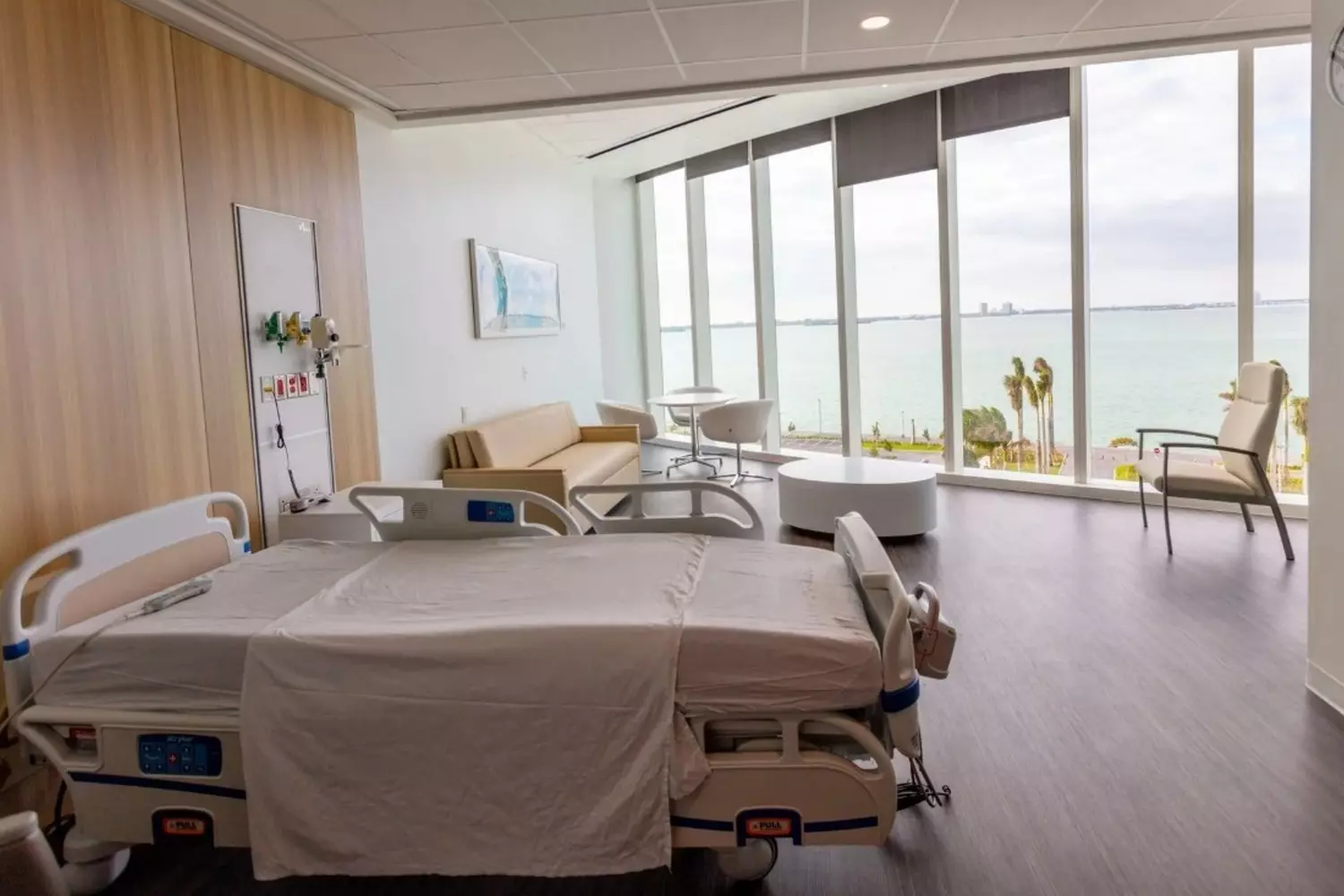
Services of Mount Sinai Medical Center: When Medicine Becomes the Art of Care
Mount Sinai is not just a place for treatment. It is a complete health ecosystem, where each department functions as part of a unified organism, with a single goal — to restore a person’s quality of life. Patients with all kinds of needs are welcomed here — from preventive check-ups to the most complex surgeries requiring precise teamwork by dozens of specialists.
The hospital operates dozens of clinical specialties, many of which are recognized as the best in the region and included in U.S. federal rankings for treatment effectiveness and safety.
- 01. Cardiology and Cardiac Surgery: The Heart of Medicine
Mount Sinai is primarily known for its cardiology program. Over the past decades, thousands of lives have been saved here, and surgical success rates consistently rank among the best in the country. The cardiology center at Mount Sinai performs:
- Coronary bypass surgery, heart valve replacement, and repair;
- Catheter-based procedures without open surgery, including TAVR — minimally invasive aortic valve replacement;
- Implantation of pacemakers, defibrillators, and heart assist devices;
- Diagnosis and treatment of arrhythmias, heart failure, ischemia, and congenital heart defects.
Specialists of international level work here, and the laboratories are equipped with hybrid operating rooms and 3D imaging systems.
- 02. Oncology: One Step Ahead of Disease
The Mount Sinai Oncology Center is one of the hospital’s key divisions. It houses the Irma & Norman Braman Comprehensive Cancer Center, which combines the latest methods in diagnosis, therapy, and rehabilitation. Patients receive full-cycle care:
- Precise diagnostics using PET-CT, genetic profiling, and molecular testing;
- Chemotherapy, radiotherapy, immunotherapy, and targeted drugs prescribed according to an individualized plan;
- Oncoplastic surgery with tissue reconstruction and organ-preserving techniques;
- Psychological support and nutritional guidance programs.
A key feature is close collaboration with research institutes and participation in international clinical trials, giving patients access to the latest medications before they hit the market.
- 03. Neurology and Neurosurgery: The Brain in Expert Hands
Mount Sinai is considered a center of excellence for the treatment of brain and nervous system disorders. Specialized units include:
- Stroke Center
Certified center for stroke treatment, providing care within minutes. - Memory Disorders Clinic
Diagnosis and therapy for Alzheimer’s disease and dementia. - Neurosurgery Unit
Brain and spinal surgeries using microscopic instruments and robotic technology.
Patients are supported by multidisciplinary teams — neurosurgeons, rehabilitation specialists, speech therapists, and psychotherapists. The main goal is not just to address the problem but to restore a full quality of life.
- 04. Orthopedics and Traumatology: Movement Without Pain
Another strong area of the hospital is orthopedics and sports medicine. Mount Sinai works with professional athletes but also helps everyday patients regain mobility after injuries or arthritis. Procedures include:
- Joint replacement (hip, knee, shoulder);
- Arthroscopic surgeries on ligaments and menisci;
- Spine treatment — from herniated discs to scoliosis;
- Individual rehabilitation and physical therapy programs.
The Sports Medicine Center deserves special attention, where treatment is complemented by modern recovery methods: laser therapy, cryotherapy, and neuromuscular stimulation.
- 05. Emergency and Urgent Care: Always There When Needed
Mount Sinai is one of the few hospitals in the region where emergency departments operate 24/7 across multiple locations. The main Hildebrandt Emergency Center on the Miami Beach campus is equipped with state-of-the-art technology:
- 50 individual rooms, including pediatric and cardiac units;
- Immediate access to CT, MRI, laboratories, and surgical teams;
- A helipad for emergency patient transport from other areas of Florida.
Each year, more than 100,000 patients pass through Mount Sinai’s emergency services, all under the same standards of safety and attentive care.
- 06. Women’s Health and Maternity
A particular pride of the hospital is the Abess Family Neonatal Unit, where deliveries are conducted and newborns, even with extremely low birth weight, are cared for.
- Modern NICU (neonatal intensive care) equipment;
- Family rooms where mother and baby stay together;
- Breastfeeding support and postpartum recovery programs.
Mount Sinai’s maternity unit is one of the few in the region to provide personalized midwives and pain management specialists for laboring mothers.
- 07. Diagnostics and Preventive Care
All treatment begins with accurate diagnosis. Mount Sinai has its own network of diagnostic centers with state-of-the-art equipment:
- 3 Tesla MRI, low-dose CT scanners, digital mammography, ultrasound, and endoscopic diagnostics;
- Genetic and biochemical laboratories capable of identifying predispositions to dozens of diseases;
- Screening programs for heart disease, cancer, diabetes, and other chronic conditions.
Preventive medicine is also emphasized — doctors help patients adopt a lifestyle that reduces the risk of illness in the future.
- 08. Additional Specialties
Mount Sinai is a multidisciplinary hospital, and its range of services is impressive:
- Gastroenterology and endoscopic surgery;
- Endocrinology and diabetes management;
- Nephrology and dialysis centers;
- Pulmonology and allergology;
- Dermatology, ophthalmology, urology;
- Psychiatry, gerontology, rehabilitation after strokes and injuries.
Each department has teams of specialists for whom medicine is not just a profession, but a calling.
Mount Sinai actively implements the patient pathway concept — where a patient’s journey from initial consultation to full recovery is structured logically, transparently, and without unnecessary bureaucracy.
Each patient is assigned a coordinator who accompanies them through every stage: consultations, tests, surgeries, and rehabilitation.
This attention to detail transforms a visit to the medical center from a stressful experience into a confident step toward recovery.
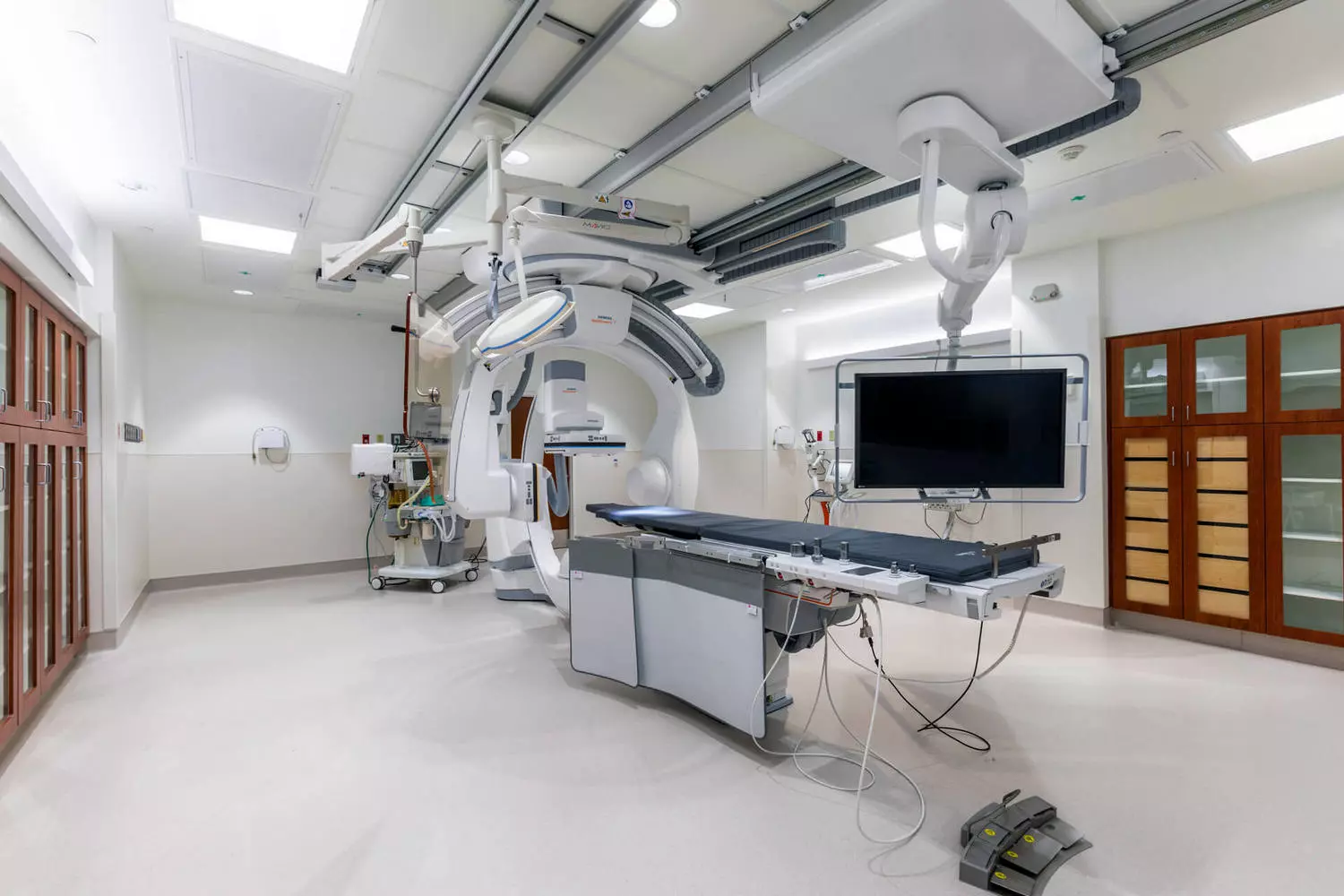
The Eighth Continent: Why Hawaii Is Unlike Anywhere Else
Facilities and Infrastructure: The Hospital of the Future, Today
In short, Mount Sinai Medical Center is a city within a city.
On the Miami Beach map, it is one of the most prominent buildings — not because of height or grandeur, but because every meter inside is designed for a single purpose: to treat people as effectively and comfortably as possible.
Many U.S. hospitals call themselves modern, but Mount Sinai truly deserves the term — here, technology, design, sustainability, and patient care go hand in hand.
- 01. Architecture and Spatial Logic: Comfort, Not a Maze
The main campus is located at 4300 Alton Road, Miami Beach — a building that unites historic wings built in the mid-20th century with entirely new structures added in recent years.
The most modern and technologically advanced addition is the Skolnick Surgical Tower and Hildebrandt Emergency Center, opened after a major renovation in 2019.
The project cost around $275 million, which represents tens of thousands of square meters of new operating rooms, patient rooms, laboratories, and engineering systems, allowing the hospital to function as an autonomous organism. Architectural and layout features include:
- Simple logistics — buildings are connected by covered walkways, and all main services are accessible without long walks;
- Natural lighting, panoramic windows, soft colors — so patients feel like they are in a hotel with a medical focus rather than a hospital;
- Soundproofing and climate control systems — small but important details that reduce stress and speed recovery.
- 02. Skolnick Surgical Tower
Skolnick Tower is the heart of the hospital. It is not just a building with operating rooms — it is a high-tech center where everything is designed for precision and safety. Inside, it houses:
- 12 fully digital operating rooms integrated with imaging and surgical navigation systems;
- Hybrid operating rooms, allowing procedures under MRI and angiography guidance during surgery;
- Separate sterile pathways for staff and patients to prevent cross-traffic;
- Autonomous ventilation and backup power supply in case of outages (important in a hurricane-prone region).
- 03. Hildebrandt Emergency Center: Speed and Precision
In any hospital, the emergency department is the first line of care. At Mount Sinai, this front line functions as a modern life management center. The Hildebrandt Emergency Center includes:
- Over 50 individual rooms with modern monitors and telemedicine connectivity;
- Specialized areas: cardiology, pediatrics, trauma, infectious diseases;
- A triage system with digital patient load tracking;
- Diagnostic equipment directly in the department — CT, ultrasound, labs — enabling diagnoses within minutes.
Every year, tens of thousands of patients visit this center, and Mount Sinai is known for having one of the shortest waiting times in the region — an important indicator of operational quality.
- 04. Equipment and Technology
Mount Sinai invests millions of dollars in medical technology. Everything here — from scalpels to scanners — is state-of-the-art. Top technologies include:
- 3 Tesla MRI machines — providing ultra-precise images for neurological and vascular diagnostics;
- Low-dose CT scanners, reducing radiation exposure for patients;
- Robotic da Vinci Xi systems used in urology, gynecology, and abdominal surgeries;
- Angiography labs for minimally invasive cardiac procedures;
- Genetic sequencing and personalized oncology laboratories;
- Advanced ventilators, extracorporeal membrane oxygenation (ECMO), and neuromonitoring equipment.
Mount Sinai was among the first in South Florida to implement an AI-based MRI brain analysis system, enabling early stroke and tumor detection with over 95% accuracy.
- 05. Patient Rooms and Comfort
Mount Sinai does not resemble a stereotypical hospital. There are no long echoing corridors or dreary walls. Rooms are spacious, bright, and mostly private. Each features a panoramic window overlooking Biscayne Bay, a TV, family area, Wi-Fi, and adjustable lighting.
All spaces are adapted for mobility-impaired patients.
The maternity and neonatal units offer family apartments where mother and newborn can stay together. - 06. Safety and Resilience
Located on the Miami Beach coast, the hospital takes climate challenges seriously.
After hurricanes in the early 2000s, Mount Sinai underwent a complete reconstruction of power and flood protection systems:
- Backup diesel generators and a dedicated substation;
- Sealed underground levels capable of withstanding storm surges;
- Windows rated for winds over 250 km/h;
- Autonomous reserves of water and medications for several days.
These measures make Mount Sinai one of the most secure hospitals in the region. Even during Hurricane Irma (2017), the hospital continued operating without interruption.
- 07. Network of Branches and Diagnostic Centers
The main Miami Beach campus is just the center of a large system. Today, Mount Sinai has over 14 branches across South Florida, including:
- Aventura, Coral Gables, Key Biscayne, Sunny Isles Beach, Hialeah, and others;
- Diagnostic centers and outpatient clinics;
- Primary and specialized care centers;
- Urgent care units and laboratories.
This structure makes the hospital accessible to residents throughout the region: patients can get diagnostics close to home and then receive treatment or surgery at the main campus.
- 08. Digital Medicine and the “Smart Hospital”
Mount Sinai actively implements e-Health technologies:
- Electronic medical records system MyChart, where patients can track tests, prescriptions, appointments, and results;
- Telemedicine consultations — especially useful for chronic conditions and rehabilitation;
- Integration with wearable devices and smart sensors.
Patients can consult a doctor remotely — the system connects to their medical history and the treating physician’s recommendations.
The technology is impressive, but the most important thing at Mount Sinai is the people. Special attention is given to the atmosphere: doctors and nurses communicate with patients in a simple, human way, explaining every step of the treatment.
Many staff members have worked here for decades. This creates a sense of stability and tradition — a rare feature in modern medicine.
Mount Sinai is a place where science and compassion come together, and it is precisely this combination that makes the results long-lasting.
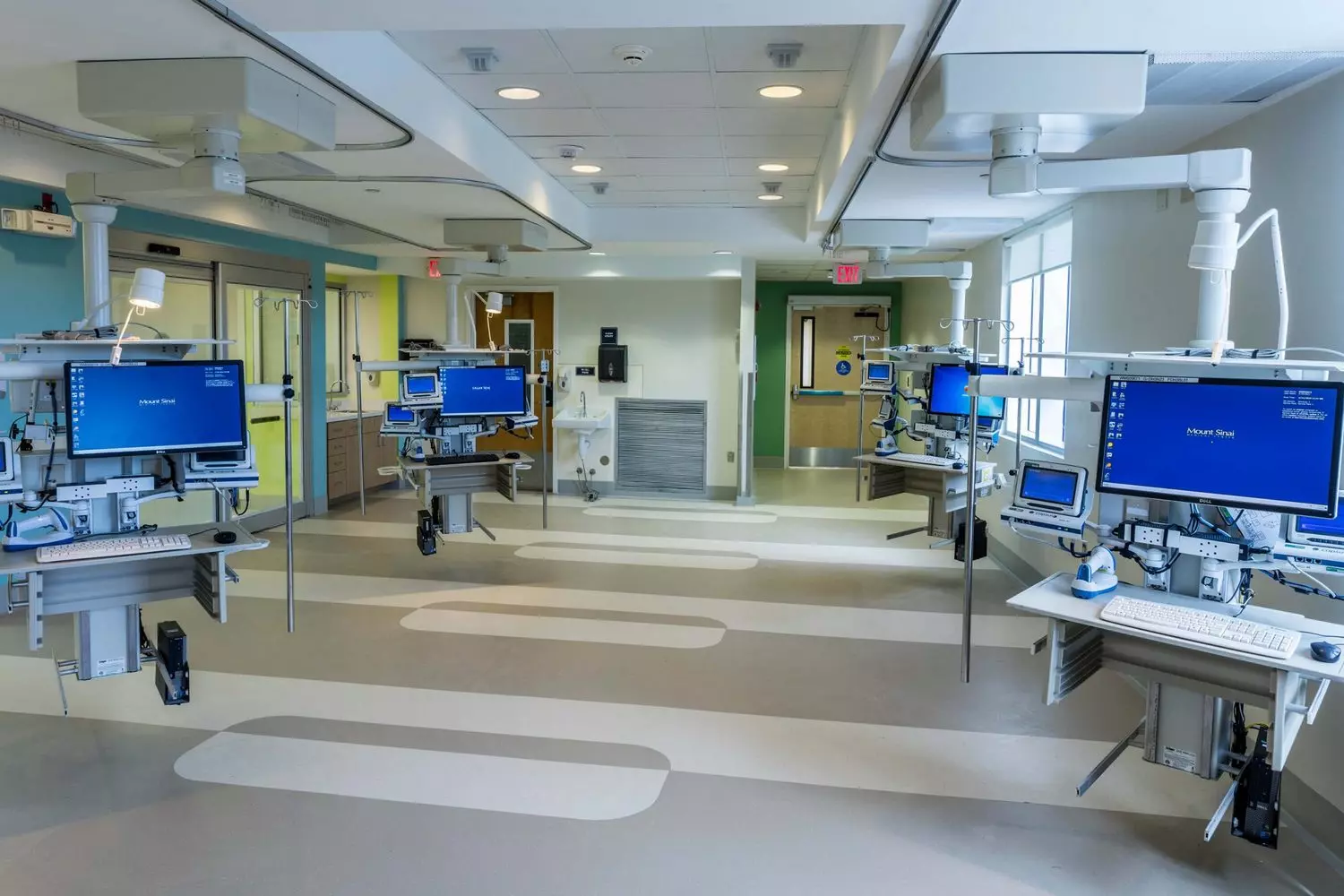
Recognition and Achievements: Trust Earned Over the Years
Mount Sinai Medical Center is not just a hospital with a good reputation. It is a medical center that has entered Florida's history as the first non-profit hospital in Miami Beach and one of the most respected in the country. Over decades of work, it has not only maintained but also multiplied the trust of patients, colleagues, and professional communities.
- 01. National Rankings and Expert Recognition
Mount Sinai consistently ranks among the best hospitals in the U.S. according to U.S. News & World Report — the country’s most authoritative medical ranking. Over the years, the hospital has received high marks in areas such as:
- Cardiology and cardiac surgery — traditionally in the top 10% of U.S. centers;
- Oncology, neurology, orthopedics, rehabilitation, geriatrics — areas with consistently high performance;
- Preventive medicine and primary care — recognized for patient care quality and low complication rates.
In 2024, Mount Sinai again made the Best Regional Hospitals list and received the status of “High Performing Hospital” in several categories, including stroke, heart failure, and lung cancer treatment.
- 02. Leader in Cardiology
Mount Sinai is unquestionably the flagship of cardiology in South Florida. Since the founding of the Mount Sinai Heart Institute, the hospital has attracted the country’s top cardiac surgeons. It was the first in the region to implement:
- TAVR — minimally invasive aortic valve replacement without opening the chest;
- MitraClip — an innovative method for treating mitral regurgitation;
- Hybrid heart surgeries with minimal patient risk.
Mortality rates after operations at Mount Sinai are among the lowest in the U.S., confirmed by the national cardiology registry Society of Thoracic Surgeons.
- 03. Research and Academic Mission
Mount Sinai Medical Center is not only about treatment but also about science. The hospital is an academic partner of Florida International University Herbert Wertheim College of Medicine.
Every year, hundreds of students, residents, and researchers train here, and the hospital’s laboratories participate in dozens of international projects. Key research areas include:
- Cardiovascular surgery and stenting;
- Oncogenetics and immunotherapy;
- Alzheimer’s disease and brain aging;
- Regenerative medicine and tissue engineering.
In 2023, Mount Sinai ranked among the top 20 medium-sized research hospitals in the U.S., receiving grants from the National Institutes of Health (NIH).
- 04. Patient Recognition
But the hospital’s greatest reward is not a diploma on the wall but the words of gratitude from those who have been treated here. Every month, the hospital receives hundreds of reviews where people thank doctors by name — for their attentiveness, warmth, and for not leaving them in difficult moments.
According to the independent portal Healthgrades, patient satisfaction at Mount Sinai exceeds 94%, significantly higher than the national average. - 05. International Recognition and Partnerships
Mount Sinai actively collaborates with medical centers from Europe, Israel, and Latin America. Through these partnerships, the hospital participates in knowledge exchange, joint research, and staff training.
Partners include Cleveland Clinic, Tel Aviv Sourasky Medical Center, Mayo Clinic, and others.
Additionally, the hospital is a certified member of the American Hospital Association and Florida Hospital Association, regularly confirming compliance with international quality and safety standards. - 06. Awards and Quality Certifications
Mount Sinai holds numerous prestigious awards and certifications:
- Magnet Recognition from the American Nurses Credentialing Center — the highest evaluation of nursing professionalism (awarded to less than 10% of U.S. hospitals);
- Gold Seal of Approval from The Joint Commission — a mark of impeccable safety standards;
- Get With The Guidelines® Award from the American Heart Association — for outstanding results in stroke and heart disease treatment;
- Leapfrog “A” Safety Grade — the highest rating for patient safety.
These awards are not formalities. They are granted only after rigorous inspections, audits, and analysis of thousands of clinical cases.
Numbers That Speak for Themselves
- Over 1,000 physicians and 4,000 staff members;
- About 60,000 hospitalizations annually;
- Over 400,000 outpatient visits per year;
- 500 beds, including 60 in the intensive care unit;
- Over 100,000 emergency department patients annually.
These numbers reflect the scale and trust. Mount Sinai Medical Center is not just the largest private non-profit hospital in South Florida but a true bastion of medicine, combining experience, innovation, and humanity.
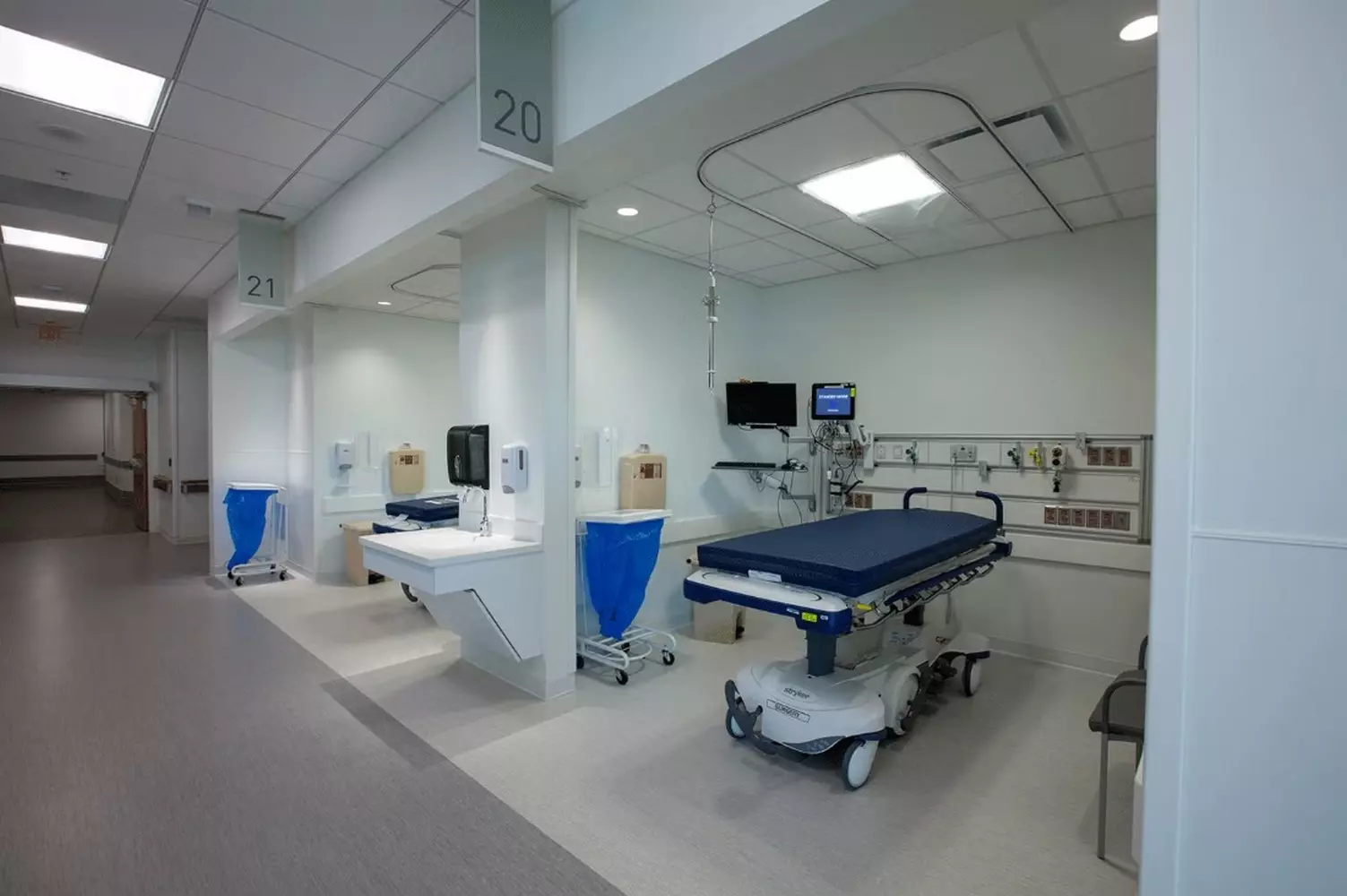
Health Begins with Attention to Details with American Butler
Mount Sinai Medical Center is an example of how modern medicine should work: with precision, humanity, and attention to every detail. Here, they treat not only the body but also restore confidence, calm, and the assurance that everything is under control.
But even the most advanced treatment requires proper preparation and support. This is where American Butler comes in — a team that helps patients navigate the entire process at the hospital without stress or hassle.
If you are planning treatment, diagnostics, or a consultation at Mount Sinai Medical Center, American Butler will handle everything unrelated to medical care but directly affecting your comfort:
- Trip Preparation
Assistance with documents, scheduling appointments, and coordinating with the hospital. - Transfers & Airport Reception
Meeting at the airport and providing convenient transportation to the clinic or hotel. - Accommodation near the hospital
Selecting hotels or apartments based on the duration of treatment and comfort level; - Personal Assistance
Interpreter, assistant support, help with communication with doctors and administrative matters; - Recovery & Leisure
Organizing walks, excursions, and recreational activities so that the treatment period is as calm and comfortable as possible.
With American Butler, you are never left alone to deal with bureaucracy, language barriers, or organizational details. We create the conditions that allow the patient to focus on the most important thing — their health.












